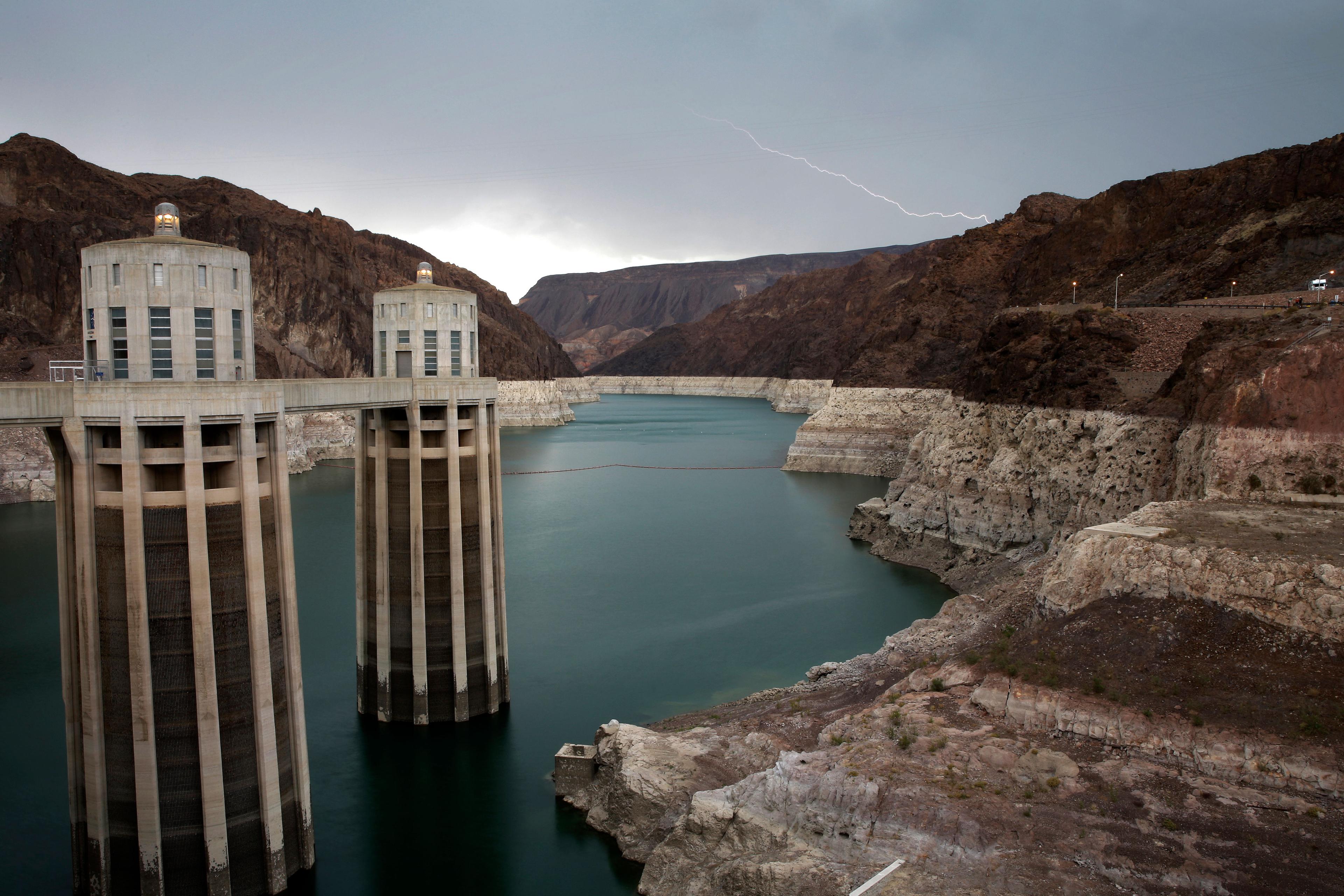

Water levels at Lake Mead and Lake Powell are dropping to dangerous levels, reflecting the Colorado River’s worsening “structural deficit,” scientists said.
Scientists from the Colorado River Research Group said Lake Powell has declined because of extra water releases flowing into Lake Mead, the Arizona Republic reported last week.
“I want people to know that what’s going on at Lake Mead is very, very closely tied to what’s going on Lake Powell,” Doug Kenney said, the group’s chair and a professor at the University of Colorado. “We’re draining Lake Powell to prop it up.”
Lake Powell is about 48 percent full, and Lake Mead is about 38 percent full. By the end of the year, Powell’s levels are projected to fall 94 feet below where the reservoir stood in 2000 when it was nearly full.
The Colorado River basin, which feeds the two reservoirs, has been drying out over the last two decades, scientists said. With the demands from farms and cities exceeding the available the water supply, the strains on the river and reservoirs are being compounded by growing population, drought and climate change.
The Colorado River and its tributaries support about 40 million people and more than 7,800 square miles of farmland.
“Continuing this operational pattern will further drain Lake Powell and erode the benefits associated with its water storage,” the researchers said their report. “If storage in Lake Powell cannot rebound in an era where the Upper Basin consumes less than two-thirds of its legal apportionment, then the crisis is already real.”
The river management system allocates equal portions of the water between the four Upper Basin states and the Lower Basin states. A far lesser portion is allocated to Mexico where the river ends.
“Better options might be found by thinking outside of this familiar framework. Lakes Mead and Powell, after all, are essentially one giant reservoir,” the group said. “Managing — and thinking — of these facilities as two distinct reservoirs, one for the benefit of the Upper Basin and one for the Lower, now seems outdated.”
The scientists suggested it could be time to reform the management system.









